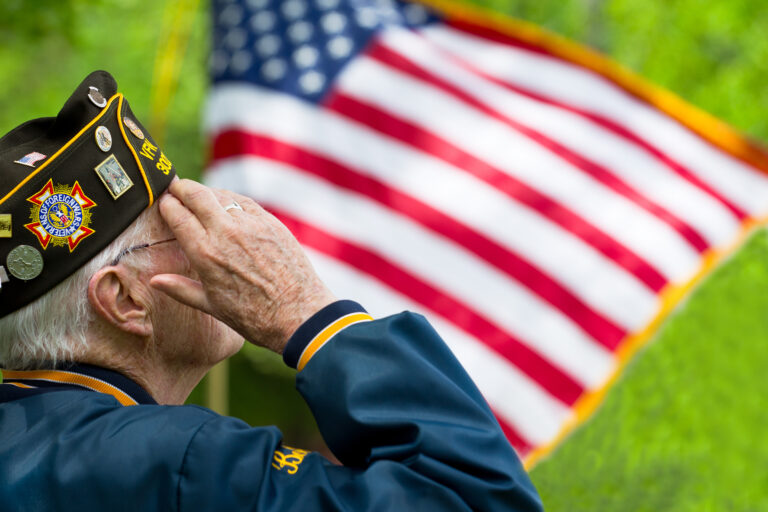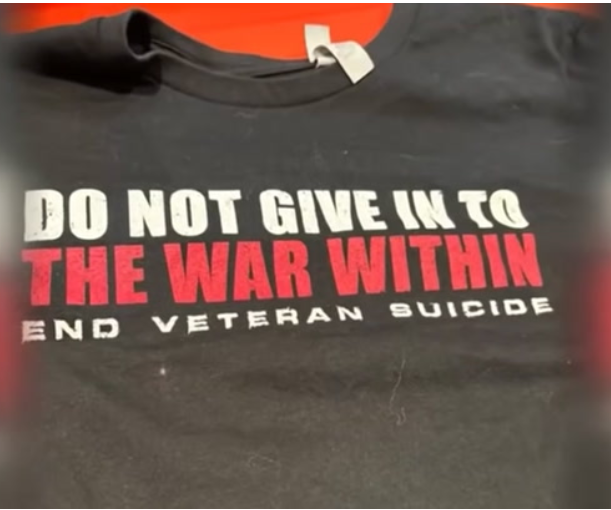A recent incident involving a Marine Corps veteran aboard a Delta Air Lines flight has sparked controversy and raised questions about the airline’s conduct and passenger rights. The veteran, Catherine Banks, was removed from a flight at San Francisco International Airport on October 16, following a dispute over her T-shirt. The situation has not only drawn attention to how airlines handle customer interactions but also to the sensitive topic of veteran support and awareness.
The Incident: What Happened Onboard?

Catherine Banks, a Marine Corps veteran with 22 years of service, was traveling to visit her fellow Marine sister when she was confronted by a Delta flight attendant. As Banks settled into her seat, she was approached by a male flight attendant who informed her that she needed to deplane.
“I was confused when the attendant called for me,” Banks recalled. “He just said, ‘You need to get off the plane,’ and I couldn’t understand what I had done wrong.” It wasn’t until Banks reached the jet bridge that she was told the reason for her removal: her T-shirt.
Why Was the T-Shirt Considered ‘Threatening’?
The shirt in question featured the words: “Do not give in to the war within. End veteran suicide.” According to Banks, the flight attendant deemed the shirt as “threatening.” Banks, shocked by this interpretation, explained that the message was meant to raise awareness about veteran suicide—a significant issue within the military community.
Banks responded, “Are you kidding me? I’m a Marine Corps vet, just trying to visit my Marine sister. This message is about preventing veteran suicide, not inciting fear.” Despite her explanation, the flight attendant insisted that she remove the shirt to be allowed back on the plane. With no other choice, Banks reluctantly changed her shirt on the jet bridge, an act that left her feeling humiliated.
A Humiliating Experience for the Marine Veteran
Given that she wasn’t wearing a bra, Banks had to turn her back to the flight attendant while changing her shirt—a situation that added to her embarrassment. “I felt like my dignity was stripped away,” Banks shared. “It’s deeply frustrating that I wasn’t allowed to express support for a cause that affects veterans like me.”
After changing her shirt, Banks was permitted to reboard the plane. However, she wasn’t allowed to return to her original seat with extra legroom, despite having paid for it. Instead, she was directed to the back of the plane, a change that ultimately caused a delay in the flight and led to Banks missing her connecting flight.
Delta Air Lines’ Response to the Incident
Following the incident, Delta Air Lines reached out to Banks in an attempt to resolve the situation. According to a spokesperson for the airline, “the matter with the customer has been resolved.” However, this resolution has not been publicly detailed, leaving many to wonder if it adequately addressed Banks’ concerns and the broader issue of passenger rights.
Delta’s Contract of Carriage allows the airline to remove passengers if their “conduct, attire, hygiene, or odor creates an unreasonable risk of offense or annoyance to other passengers.” While Delta maintains that it acted within its policy, many are questioning whether the airline’s response was appropriate, given that the shirt’s message centered on an important mental health issue affecting veterans.
The Importance of the Message: Raising Awareness About Veteran Suicide

The incident has shone a light on an urgent cause: veteran suicide awareness. According to the U.S. Department of Veterans Affairs, veteran suicide rates are significantly higher than those of the general population. Raising awareness and promoting mental health resources for veterans is a vital part of combating this crisis.
Banks’ shirt aimed to do exactly that—spread awareness and encourage support for veterans struggling with mental health issues. The phrase “Do not give in to the war within” serves as a reminder of the battles many veterans face long after their military service ends. In this context, the removal of Banks from the flight over the shirt’s message has sparked a debate about whether airlines are effectively considering the meaning behind certain messages before deeming them inappropriate.
Public Reactions to the Incident
The incident has sparked a significant reaction on social media and in the news. Many users have expressed outrage at Delta’s handling of the situation, arguing that the airline’s response was insensitive to the message’s intent. Social media comments ranged from anger to support for Banks, with users questioning how a shirt meant to prevent veteran suicide could be seen as threatening.

“This is beyond offensive,” one Twitter user wrote. “Veteran suicide is a real issue that we need to talk about, not censor.”
Another comment read, “How can a shirt that’s meant to save lives be seen as threatening? This is an important cause, and it’s sad that someone was treated this way for trying to spread awareness.”
While many supported Banks, some pointed out that Delta was likely following its policy, however flawed it may be. Nonetheless, the incident has opened up discussions about how airlines should balance freedom of expression with passenger comfort and safety.
The Broader Implications for Veteran Advocacy
Banks’ experience has raised broader questions about how veteran advocacy is perceived in public spaces. Advocating for veteran mental health is critical, and initiatives like “End Veteran Suicide” seek to bring visibility to the mental struggles many veterans endure. The controversy surrounding Banks’ shirt underscores the challenges advocates face in spreading their messages without facing unnecessary censorship or backlash.
Conclusion: Was Delta’s Response Justified?
The incident involving Catherine Banks is more than just a debate over a T-shirt; it’s a conversation about free expression, veteran advocacy, and airline policies. While Delta claims to have resolved the issue, the incident raises crucial questions about how sensitive messages are interpreted and how airlines handle situations involving veteran issues.
Banks’ story serves as a reminder of the importance of supporting causes that matter—particularly those aimed at saving lives. As discussions about veteran mental health continue, it’s essential that advocates are allowed to promote awareness without facing unnecessary barriers.
Ultimately, this incident highlights a need for more sensitivity training among airline staff and a re-evaluation of how policies are enforced. Only then can airlines ensure that all passengers, especially those advocating for critical causes, are treated with the respect they deserve.


